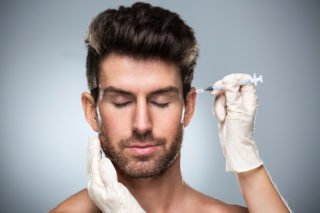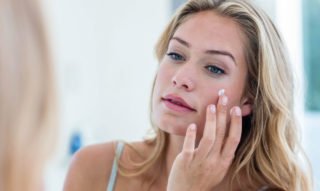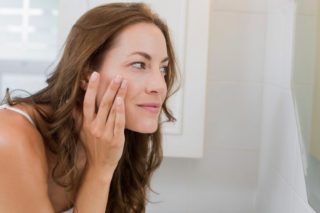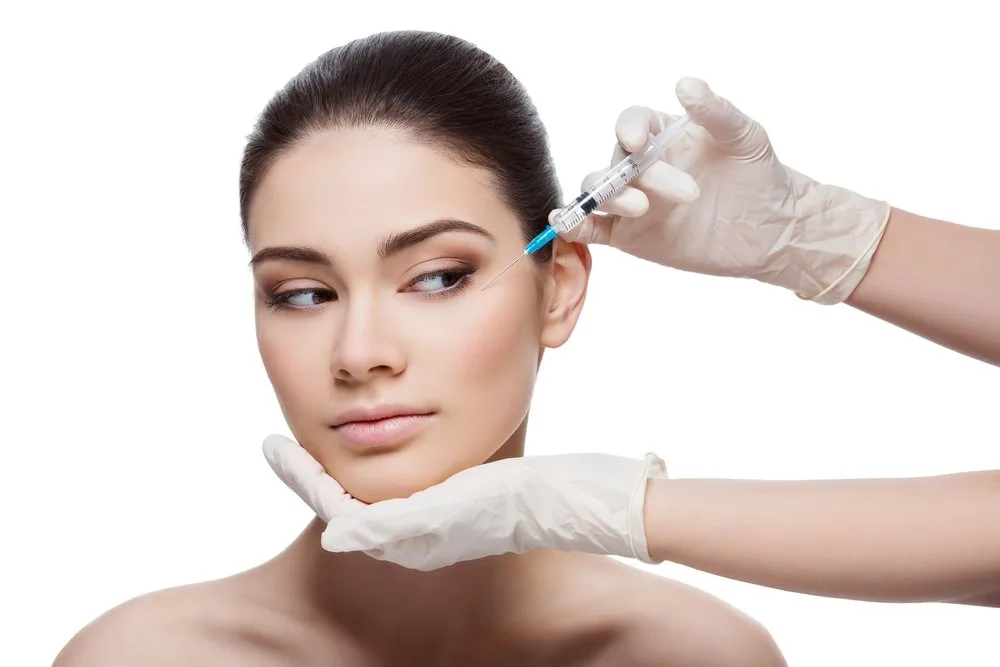The use of aesthetic treatments and procedures is widespread from chemical peels to fillers, to botulinum toxin (botox) procedures. It’s clear that anti-aging treatments are always the order of the day. In fact, in 2018 alone, around 15.8 million minimally invasive cosmetic procedures were performed in the United States. Out of these procedures, over 1.8 million were for botulinum toxin procedures. It’s clear that aesthetic procedures are a part of our everyday lives, at least they were. With the current state of affairs surrounding the coronavirus pandemic, our trips to the aesthetic clinic have been interrupted. This has then left those who routinely visit aestheticians with one question – what do we do with our faces?
Nobody possesses the general expertise, nor the tools, to perform their own aesthetic procedures at home. Now we’re worried about post-lockdown skincare woes. Thankfully, you can still keep away fine lines and wrinkles without the help of your aesthetician. All you need is a strong anti-aging skincare routine.
But what if I need Botox?
The good news is that Botox tends to last for about four to six months, so if you have treatment before the implementation of lockdown, then you have nothing to fear. However, if you’re coming up at the end of your six months, you should be able to notice that your wrinkles and fine lines are less defined.
What about my fillers?
It can be hard to find a product that can replace volume the same way that fillers do. This is why it’s important to adopt preventative skincare techniques that help to maintain the volume and health of your skin before it begins to droop.
And at-home peels?
If you’re in desperate need of treatment, you can still cater to your skin through the use of at-home peels. Not only are they significantly cheaper than professional peels, but they also contain the same potent ingredients but in concentrations safe enough for at-home use (the last thing you need to be doing in this pandemic is burning your face off in the bathroom).
At-home facial peels can help exfoliate your skin, clearing up clogged pores, moisturizing and revitalizing the skin, leaving you with a much more supple and youthful appearance.
 It should be noted that those with sensitive skin may want to steer clear of chemical peels as they could experience irritation.
It should be noted that those with sensitive skin may want to steer clear of chemical peels as they could experience irritation.
However, if you’re not a fan of chemical peels, you can still maintain your youthful appearance while under quarantine.
6 Anti-Aging Quarantine Hacks
The fact is, maintaining an anti-aging skin care regimen will help your skin. That said, use this opportunity to start and maintain a perfect anti-aging skincare regimen.
1. Use Growth Factors
Sadly, as we age, our skin grows through a lot and this then results in the formation of fine lines and wrinkles. Luckily, there are a few ingredients that can combat this aging concern – enter growth factors.
Growth facts are natural proteins found in the body that encourage the production of collagen, helping to keep the skin firm. Because of this, they are routinely used in aesthetic procedures as they can also help to repair broken skin and soothe inflammation. 
On your next trip to top up on your skincare, try to find a product that has growth factors in it as they will help you maintain a supple appearance.
2. Retinol
The ultimate anti-aging ingredient. If you can’t get near an aesthetic clinic, then this is the ingredient that you need in your skincare arsenal.
Firstly, while the terms retinol and retinoids are used interchangeably, they’re actually two different things. Firstly, retinol is the over-the-counter version of Retin-A, a prescription level retinoid that is much stronger in nature, and regularly used for serious forms of acne as well as aging. Retinoids are a chemical compound of vitamin A and it is the family that Retin.-A and Retinol belong to.
Research has found that retinol can help to encourage the production of collagen, alleviate the appearance of wrinkles, and even treat acne. The best part is, you don’t have to be over a certain age to use retinol introducing the product in your mid-twenties would be an advisable thing to do.
 When using retinol, I wouldn’t advise that you choose the strongest formula but rather build up a slow tolerance. Limit your use of retinol to once or twice a week, and try to only use it at night. If you’re opting for day use, make sure to always use high, broad-spectrum sunscreen.
When using retinol, I wouldn’t advise that you choose the strongest formula but rather build up a slow tolerance. Limit your use of retinol to once or twice a week, and try to only use it at night. If you’re opting for day use, make sure to always use high, broad-spectrum sunscreen.
3. Antioxidants
Free radicals are molecules that can cause damage to the body, increasing the risk of diseases as well as accelerating the aging process. The best way to protect yourself against the damaging effects of free radicals is through the use of antioxidants as they prevent free radical damage to our skin.
Try including these antioxidants in your anti-aging routine:
- Vitamin C: Vitamin C is the best anti-aging antioxidant. It stimulates collagen production, fights off free radicals and it also brightens the skin, fading dark marks.
- Vitamin E: Sun damage can age the skin, luckily vitamin E has been found to protect against sun damage.
- Vitamin B3: Vitamin B3 helps to hydrate the skin and even reduces fine lines and wrinkles (1).
- Polyphenols: The main ingredients found in green tea, polyphenols (also known as catechins) have a strong antioxidant effect and this helps to protect against photodamage to the skin.
- Resveratrol: Naturally found in berries, peanuts, and red wine, resveratrol’s strong antioxidant properties can help to prevent sun damage and the loss of collagen.
4. Moisturize
Moisturizing your skin helps to maintain moisture and prevent dryness.
Additionally, it can also help to protect the skin against environmental elements that accelerate the aging process. In fact, one of the best ways to introduce antioxidants to your skin is through a moisturizer.
5. Sunscreen
Quarantine aside, minimizing your exposure to the sun is a good habit. This is because sun damage is the leading cause of wrinkles, so it’s important to protect against it. You may not think you need to use sunscreen when you’re stuck indoors but the sun’s rays can still penetrate through glass windows.
Applying sunscreen is non-negotiable so learn to regularly apply broad-spectrum sunscreen with a high SPF to your face, neck, and hands.
6. Manage your stress levels
This may be hard to do in the midst of a pandemic, but stress has been found to accelerate the aging process so maybe turning off the news would be a good way to start.
Additional stress-relieving techniques also include meditation, reading, having a zoom call with friends, or even gardening.
References
Gehring, W. (2004), Nicotinic acid/niacinamide and the skin. Journal of Cosmetic Dermatology, 3: 88-93. doi:10.1111/j.1473-2130.2004.00115.x
Kafi R, Kwak HSR, Schumacher WE, et al. Improvement of Naturally Aged Skin With Vitamin A (Retinol). Arch Dermatol. 2007;143(5):606–612. doi:10.1001/archderm.143.5.606
Kong, R., Cui, Y., Fisher, G.J., Wang, X., Chen, Y., Schneider, L.M. and Majmudar, G. (2016), A comparative study of the effects of retinol and retinoic acid on histological, molecular, and clinical properties of human skin. J Cosmet Dermatol, 15: 49-57. doi:10.1111/jocd.12193
Leyden, J., Stein-Gold, L., & Weiss, J. (2017). Why Topical Retinoids Are Mainstay of Therapy for Acne. Dermatology and therapy, 7(3), 293–304. https://doi.org/10.1007/s13555-017-0185-2
Pinnell S. R. (2003). Cutaneous photodamage, oxidative stress, and topical antioxidant protection. Journal of the American Academy of Dermatology, 48(1), 1–22. https://doi.org/10.1067/mjd.2003.16
Want to know more?
In addition to keeping your skin healthy, you should also make sure that you’re eating the right foods. This is easier said than done as some food myths may be affecting how healthy our diet is. For your health, it’s important to know the most popular food myths.



![women [longevity live]](https://longevitylive.com/wp-content/uploads/2020/01/photo-of-women-walking-down-the-street-1116984-100x100.jpg)










